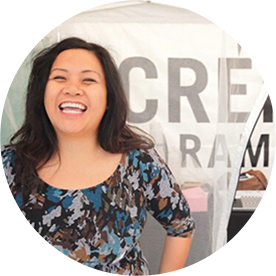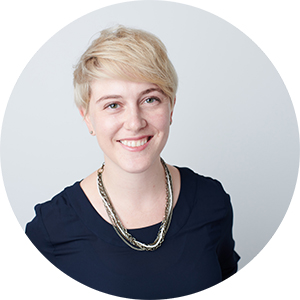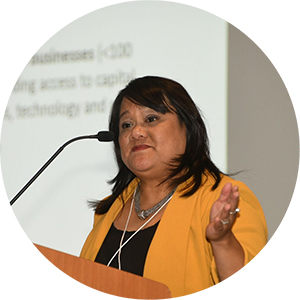Panel of experts share best resources for women small business owners
In October we celebrate National Women’s Small Business Month by sharing resources for small business owners and women’s stories of entrepreneurship. This year, we asked a panel of experts about their personal and professional experiences with women’s entrepreneurship.
Our panel includes:
 Kristine de la Cruz: Kristine is the owner of Crème Caramel LA and is a graduate of the Goldman Sachs 10,000 Small Businesses program. She also participated in Small Business Majority’s 2015 Leadership Summit in Washington D.C. to discuss the needs and concerns of small businesses alongside other founders from across the country. She has been honored to be included in several food and business panels discussing the state of the industry (including Next Day Better, Women's Entrepreneurship Day by City of Los Angeles, Philippine American Chamber of Commerce, Los Angeles, Eastside Food Festival).
Kristine de la Cruz: Kristine is the owner of Crème Caramel LA and is a graduate of the Goldman Sachs 10,000 Small Businesses program. She also participated in Small Business Majority’s 2015 Leadership Summit in Washington D.C. to discuss the needs and concerns of small businesses alongside other founders from across the country. She has been honored to be included in several food and business panels discussing the state of the industry (including Next Day Better, Women's Entrepreneurship Day by City of Los Angeles, Philippine American Chamber of Commerce, Los Angeles, Eastside Food Festival).
 Lauren Rosenbaum: Lauren leads U.S. thought leadership, industry engagement and government affairs activities for Accion, a leading national nonprofit small business lender and part of a global organization focused on financial inclusion. Lauren previously worked for a management consulting firm, Atlas Research, and a strategic communications firm, GMMB, where she supported a variety of communications campaigns related to health equity and corporate social responsibility for federal, nonprofit and corporate clients. Her prior experience also includes managing community outreach in Kenya for Zidisha, a direct peer-to-peer microfinance platform.
Lauren Rosenbaum: Lauren leads U.S. thought leadership, industry engagement and government affairs activities for Accion, a leading national nonprofit small business lender and part of a global organization focused on financial inclusion. Lauren previously worked for a management consulting firm, Atlas Research, and a strategic communications firm, GMMB, where she supported a variety of communications campaigns related to health equity and corporate social responsibility for federal, nonprofit and corporate clients. Her prior experience also includes managing community outreach in Kenya for Zidisha, a direct peer-to-peer microfinance platform.
 Geri Aglipay: Geri Aglipay manages Small Business Majority’s national outreach to women entrepreneurs and women's business organizations, as well as our Midwest outreach work from our Chicago office. As a former solo-entrepreneur, Geri is passionate about helping small business owners strengthen their asset building and building an inclusive economy that works for all through entrepreneurship, especially for women, communities of color and the underserved. Read more about Geri. »
Geri Aglipay: Geri Aglipay manages Small Business Majority’s national outreach to women entrepreneurs and women's business organizations, as well as our Midwest outreach work from our Chicago office. As a former solo-entrepreneur, Geri is passionate about helping small business owners strengthen their asset building and building an inclusive economy that works for all through entrepreneurship, especially for women, communities of color and the underserved. Read more about Geri. »
Q: What are some of your favorite resources available to women entrepreneurs?
KC: Locally, I’ve been involved with Entrepinayship, which is an organization that supports Filipina small business owners in Southern California. I really love how even though everyone comes from different industries, our common cultural background makes it easy to relate and support each other. I find the time I spend with Entrepinayship to be really therapeutic because I get to talk about things that I can’t talk about with non-business owning friends. Business ownership can be really hard and it’s important to have those support systems.
LR: Community development financial institutions (CDFIs) like Accion are focused on supporting those entrepreneurs who are poorly served by traditional financial providers and business networks—including women and entrepreneurs of color. CDFIs are great resources not only because they offer affordable capital, but also because they offer valuable resources and connections. More than 300,000 entrepreneurs used Accion’s business resources last year, including online articles, webinars and videos as well as in-person coaching and events.
GA: Our online resource portal, Venturize, has really helpful information on how to start and grow your business. You can find content on how to build your business credit, how to find responsible lending and tools on business planning and marketing, and you can even get matched with a lender near you based on your location.
Visa’s practical business skills site is also a great resource. It’s easy to use and has wonderful tools for small business owners to take advantage of. They’ve put a lot of thought into the platform and it really complements their She’s Next program.
Q: What is the biggest obstacle for women looking to start or grow a business?
KC: In my experience, the biggest issue is having the confidence to ask for help. I don’t always know who to go to, and when I do I’ve found it’s hard to ask for that help.
Last year I was going through a hard time with my second business, and I was really struggling. Once I asked for help, I realized that people really, genuinely wanted to help, and that was a huge learning experience.
LR: The biggest obstacle facing women entrepreneurs is that they are operating in an environment that isn’t built for them. A study by the New York Federal Reserve reports that women-owned firms apply for business loans at a similar rate as men-owned firms, yet they are significantly less likely to receive financing (47% versus 61%) and they are more likely to receive less than the full amount they requested, even at low levels of credit risk. In light of data indicating that women-owned businesses are better investments than their male-owned peers, it is imperative upon financial institutions and investors to better account for the unique strengths that women bring to the table.
GA: Access to capital is one we talk about a lot, but I think business financial literacy is even more important. There are so many people who haven’t been taught about the basics of financing their business, business financial skills and how to set up their business operations. It is so important to get this figured out early in your business’ life. By not getting your business financials in order first, you are setting up your business to fail. That’s why I always direct small business owners to our resource locator map, so they can find and connect with our partners who provide no or low cost technical assistance all over the country.
Q: On a policy level, what can federal and state officials do to better represent the needs of women small business owners?
KC: Access to capital is something that is always important, but we also need more support for low-income women. Not everyone has money to complete their education, but everyone should have access to resources to learn how to run their business so people can be self-sufficient and provide for their families. This is why we need more dedicated support for the SBA and programs like Women’s Business Centers that specifically support women entrepreneurs.
LR: A key priority is to fix the policy gaps that enable predatory business lending practices to thrive and threaten the livelihoods of women entrepreneurs. In the U.S., the consumer protections that apply to most financial products do not apply to small business loans. That’s why we co-founded the Responsible Business Lending Coalition, which created the Small Business Borrowers’ Bill of Rights and advocates for policies that advance transparency and fairness in the small business lending industry.
GA: On a policy level we are seeing a disproportionate number of women and entrepreneurs of color being affected by predatory lending practices. This is why we’re working alongside Accion and other members of the Responsible Business Lending Coalition to advocate for policies to extend Truth in Lending Act disclosure requirements to small business loans or credit products, as was done at the state level in California last year.
Also, women disproportionately end up missing work to take care of children and sick family members. We need policies like paid family and medical leave insurance programs to address work-life balance and provide a way for women to have a stable income while dealing with stressors at home.
Q: In your opinion, why do we need to do more to support and promote women’s entrepreneurship?
KC: We need to teach women entrepreneurship skills so they can find sustainable ways to make money and work for themselves.
I’ve seen a trend of women in particular running social media-based businesses or engaging in multi-level marketing campaigns as a means to make extra money and build a brand, but I worry about how sustainable that may be in the long term. This is why I advocate for teaching and learning basic business and financial skills so women have the tools they need to launch and grow stable businesses.
LR: Supporting diverse entrepreneurs is one of the most powerful tools to reduce wealth inequality. Women, and especially women of color, are starting businesses at record rates – both because traditional employment options aren’t meeting their needs and because they are gaining greater access to opportunities and resources to pursue entrepreneurship. Ensuring that they are adequately supported in starting and scaling their ventures has the potential to dramatically improve economic prosperity for women, their families and their communities.
GA: Two-thirds of women are the breadwinners in their families. On top of that, women retire with 70% less in savings than men. Entrepreneurship is a lifeline to achieve income security, whether it be their sole income or supplemental. We need to invest and support women and the systems that enable women’s entrepreneurship to give women more economic opportunity so they can support themselves and their families.
Q: What is one piece of advice you’d like to share with women small business owners?
KC: If you have the calling and you want to open your business, go out and pursue it. Work as much as you can at your 9 to 5 while you build a sustainable business. It’s hard, but it takes a lot of the financial burden off you and makes the transition into full-time business owner easier.
LR: Jessica Spaulding, an Accion client and founder of Harlem Chocolate Factory, offered one of my favorite pieces of advice in an interview on SWAAY: Advice without a plan is actually criticism. “As a woman, I felt like I needed to take everyone’s advice. Some of it is discouraging and you can end up tearing yourself down every day,” she said. “Being able to identify when you hear a piece of advice that will add value is key to moving forward.”
GA: You only have 24 hours in a day, but you need to set aside time each day to take care of yourself, your other obligations and your business. You may need to sacrifice some of your other responsibilities to do so, but you need to keep that balance. At the same time, set realistic expectations for yourself. Organizing your time is really important, and if you can’t do it yourself, seek help from organizations like the Women’s Business Centers that have rich resources to help you balance business development and your personal wellbeing.
